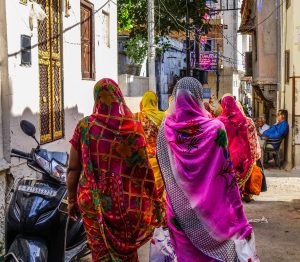The recent U.S. Supreme Court ruling overturning American women’s constitutional right to abortion has turned the spotlight on women’s access to safe abortion globally. In India, although abortion is a legal right, conservative social attitudes hamper women’s access to safe abortions.
The overturning of the Roe v.Wade ruling by the U.S. apex court left it to the discretion of states to legislate access to abortion, whether to regulate it or permit it. The majority of Republican states, bolstered by conservative Christian constituents, are in the process of making abortion illegal in their states. As the dissenting judges pointed out, taking away abortion rights “curtails women’s status as equal and free citizens.”
“At the heart of the abortion debate is the woman’s right to her own body, her autonomy,” said Dr. Kranti Suresh Vora, professor at the Indian Institute of Public Health, Gandhinagar.
In India, the Medical Termination of Pregnancy (MTP) Act was enacted in 1971 allowing abortion for up to 20 weeks of pregnancy. This was amended in 2021 to extend it to 24 weeks of pregnancy under specific circumstances, which include survivors of rape and incest. Then-Health Minister Dr Harsh Vardhan had described the amended bill as “A historic bill ensuring dignity, safety & wellbeing of women!” It would “strengthen the confidentiality clause as well,” he added.
Abortion in all circumstances requires the medical opinion of a doctor. As per the MTP Act, abortions are allowed in situations where the continuation of the pregnancy would involve grave risk to the woman’s physical or mental health or would pose a risk to the life of the pregnant woman.
Where continuing the pregnancy could result in the child being born with serious physical or mental abnormalities, the assent of a medical board is needed for an abortion. Failure of contraception or birth control leading to an unwanted pregnancy can be sufficient reason for causing mental anguish to a woman who can then go for an abortion.
However, as Vora told The Diplomat, often patriarchal norms of society take away a woman’s autonomy. “The law permits abortions but the ground reality is that when women go to clinics for abortions, they are asked to show consent of their husbands or partners for the procedure,” Vora explained. The situation is even more difficult for unmarried girls and women because of the social stigma attached to abortion, she said, which then pushes them toward unsafe abortions, most often through unregulated use of pills prescribed by the local chemist.
Vora stresses the need for effective implementation of the law and for counseling of adolescents to avoid teenage pregnancies.
As public health professional Vandana Prasad wrote in the Economic and Political Weekly, “Unsafe abortions contribute significantly to maternal mortality, and it has been proved that having legislations permitting abortion prevents unsafe abortions and brings down maternal mortality.”
Given the social stigma attached to abortion, accessing it openly becomes difficult for women. Dr. Dileep Mavalankar of the Public Health Foundation of India (PHFI) told The Diplomat that access to safe abortion facilities is especially skewed for the poor, the marginalized, and those from minority communities as well as for women in rural areas.
What makes India’s situation distinct from that in the U.S., where there is a powerful anti-abortion lobby, is the practice of sex selective abortion of female fetuses. Preference for a male child in conservative families often leads to situations where the family illegally attempts to find out the gender of the child. Sex determination of the fetus is a crime in India. If it is a girl child, then the family may compel the woman to get an abortion.
To combat this, the Pre-Conception and Pre-Natal Diagnostic Techniques (PCPNDT) law was enacted banning prenatal sex determination to stop female feticide. Nonetheless, female feticide is still prevalent in both affluent and poor sections of society.
It is vital to underscore the fact that while the MTP Act enables a woman to exercise her reproductive right to abortion, the PCPNDT Act is aimed at preventing coerced abortion of female fetuses. Anti-abortionists attempt to conflate the two but the two legislations uphold the fundamental rights of a woman and her autonomy.
Even as we condemn the “regressive” moves by the U.S. on abortion, it would be opportune to ensure better implementation of the abortion laws in India. What is also needed is a change in societal attitudes on abortion and recognition of this as a woman’s right, her choice.

































